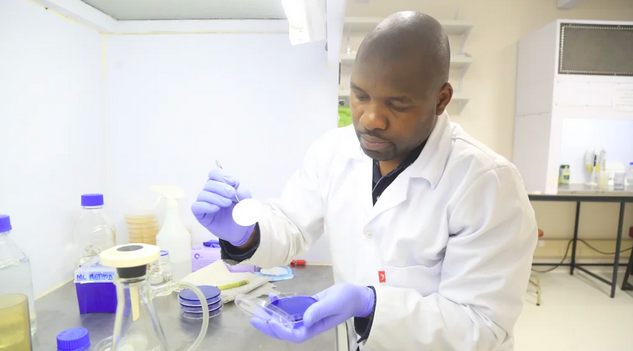By Staff Reporter
The Rhodes University Biotechnology Innovation Centre (RUBIC) has officially launched a water testing facility at the Biotechnology Innovation Centre after months of discussions with some of Makhanda’s worst-affected communities.
The need for the facility has become more evident over recent years in Makhanda, with many people reliant on stored water supplies and natural water sources as the town’s water crisis has continued.
RUBIC Director Professor Janice Limson, who heads up the facility, said it was an honour and a privilege to inaugurate the water testing facility. Limson and her colleagues at RUBIC – as well as collaborators in the Rhodes University Faculty of Pharmacy – had been developing this facility for several years.
Funded through National Research Foundation grants, the launch of the water testing facility was the outcome of intentional community-engaged research and collaborative scientific research.
Working closely with the most affected communities, Limson said that any citizen of Makhanda could access the facility. Postdoctoral researchers from RUBIC, Dr Linda Khumalo and Dr Nhamo Mutingwende, working with Dr Martin Mickelsson of the ELRC, have extensively engaged community members about their specific needs and perspectives for the water testing facility. The Public Service Accountability Monitor’s “Action for Accountability” team, led by Andile Nayika, has also received training on how to collect water samples for testing at the lab.
Mutingwende, who was instrumental in setting up the new laboratory that houses the facility, said engaging communities as partners guarantees that common water challenges in the town will receive immediate attention and also transfer information and skills. He noted that the facility would support testing of home water taps, rainwater tanks, and stored water and its services would also be extended to companies and schools for a nominal fee.
Mutingwende noted that the facility aims to be self-sufficient and will charge nominal fees. These fees would help cross-subsidise the pro bono monitoring of targeted water sources through its collaboration with PSAM.
Makhanda Circle of Unity Programme Manager, Sakhe Ntlabezo, affirmed the importance of pro-bono testing of communal water access points to ensure equitable access to this facility for all citizens.
The Acting Deputy Vice-Chancellor for Research & Innovation, Professor Joanna Dames, said opening the water testing facility was a crucial step in ensuring that the citizens of Makhanda have access to safe water. “The facility will only be adequate if we all work together. This facility will allay people’s anxieties about water and provide them with comfort,” she said.
Makana Municipality’s Manager of Water and Sanitation, Gubevu Maduna, expressed enthusiasm for collaborating with the university. Rhodes University Community Engagement Director Diana Hornby said the facility would further bridge the gap between the institution and the community.
Residents of Makhanda who want to learn more can contact Lwazi Madikiza, who heads up RUBIC’s Community Engagement research, at 046 603 7673 or by email at l.madikiza@ru.ac.za.
(This is an edited version of an article first published on RU’s website).


